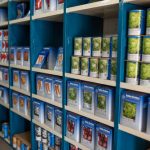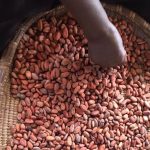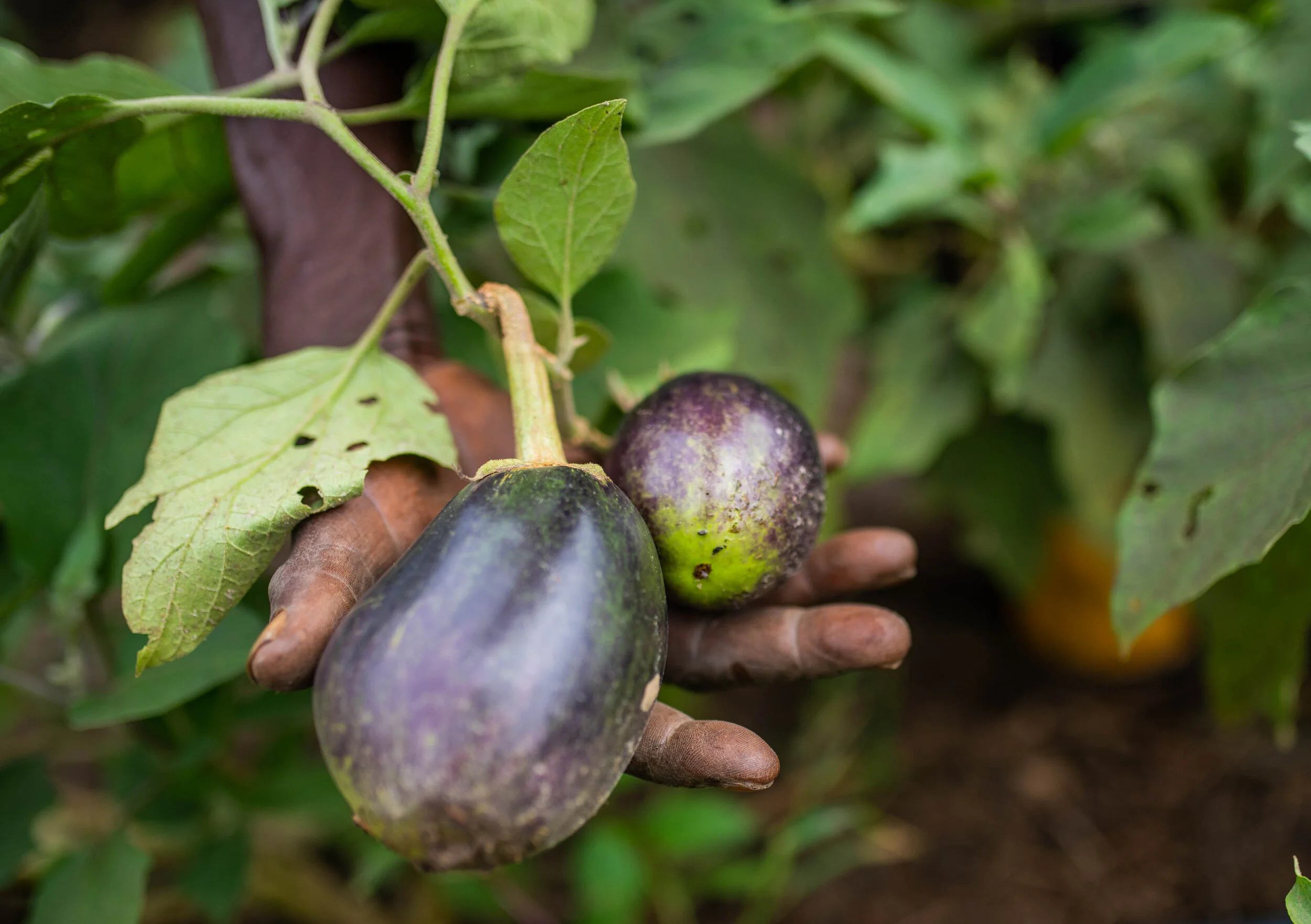
Duty Waiver to help attract critical, missing investment for Liberia’s agricultural industry
January 9, 2024
Organic Cocoa Certification
January 9, 2024His Excellency Dr George Manneh Weah, President of the Republic of Liberia, signed Executive Order No. 97 on 14th August 2019, beginning a one-year duty waiver on a range of agricultural products such as seeds, agrochemicals and farming equipment. This represents progress in overcoming a major hurdle for Liberian farmers trying to access highquality agricultural inputs at an affordable price. GROW estimates that it has the potential to reduce the cost of agricultural inputs by up to 24%.

HOW IMPORT TARIFFS STIFLE DOMESTIC FARMING
High import tariffs are a major reason why Liberia is viewed as an unappealing market for input distributors compared to most other West African countries. This has a direct impact on smallholder farmers, who struggle to afford the necessary inputs to farm efficiently and often end up with substandard products at inflated prices.
“To grow vegetables, you need fertilisers,” says Julius M. Bass, National Coordinator of the Farmers Union Network. “Fertilisers are here but they are too expensive for farmers. As a result, we are planting without them.”
“The exorbitant prices of agricultural inputs are a major factor contributing to the low yields that farmers realize after they work so hard,” agrees Rebecca S. Kalayi, President of the National Agro Inputs Dealers Association of Liberia (NAIDAL).
Most of Liberia’s small-scale agro-dealers, who are the main suppliers of inputs to smallholder farmers, source their products from neighbouring Guinea and Cote d’Ivoire. They purchase in small quantities and transport their goods over the border in commercial taxis. Although often cheaper than the inputs available from larger distributors in Monrovia, this channel is still inefficient and poorly regulated. It is also not scalable, due to an absence of credit arrangements between agro-dealers and their suppliers and hidden costs including transportation and currency exchange, combined with the small quantities in which the goods are purchased which lead to higher per unit prices.
In a bid to attract more distributor and supplier investment and encourage an inflow of affordable, high quality inputs directly into Liberia from overseas manufacturers, GROW has worked with a range of stakeholders to develop Executive Order No. 97: The Suspension of Tariffs on Agricultural Products.
BENEFITS OF THE EXECUTIVE ORDER
Executive Order No. 97 temporarily resolves a key constraint affecting smallholder farmers and the agricultural sector more broadly by waiving import tariffs on specified agricultural inputs and equipment for a one-year period. This will reduce the cost of importing inputs by up to 24% through the removal of duties and Goods and Services Tax (GST). Importers will still be required to pay the Customs User Fee (1.5%), and, where products originate from outside of the ECOWAS region, the ECOWAS Trade Levy (ETL) (0.5%).
Chernoh Jalloh is the Sierra Leone Country Manager for TJAL, a Guinea-based inputs distributor which also operates in Sierra Leone and in 2018 began testing the market in Liberia. “At first, we were bringing inputs overland from Freetown to Liberia, where we faced lots of challenges including the bad road network and checkpoints,” he says. “Now, we will import directly from our manufacturers in Belgium and China to the port in Monrovia, which will help both the business and farmers.”
As well as encouraging large importers, the removal of taxes will enable smaller scale dealers to access the market as it becomes more affordable to import agricultural products. Although freight costs remain high, Kalayi envisages several of NAIDAL’s members grouping together to import containers of inputs to supply the smallholder market.
“Lowering duties is expected to create a competitive space for agro-dealers that will ultimately benefit poor Liberian farmers,” says Kalayi. “We believe that the duty waiver will boost farmers’ yields and contribute to the socioeconomic development of our rural communities.”
A GROUP EFFORT
The development of the Executive Order involved collaboration between multiple government and commercial stakeholders, namely the Liberia Revenue Authority; the Ministries of Agriculture, Finance and Development Planning, and Commerce and Industry; the National Investment Commission; and NAIDAL. Representatives from these organisations provided input to the draft Order, ensuring that it could achieve its objectives whilst adhering to legal and administrative requirements and the government’s wider development agenda.
“The Executive Order feeds into the broader government strategy to stimulate the agricultural sector and is particularly intended to bring change for smallholders,” says Hon. Molewuleh B. Gray, Chairman of the National Investment Commission. “Currently, suppliers are passing the high import cost on to farmers. We now need to make sure the reduction is also passed down.”
DEMONSTRATING IMPACT AT THE FARMER LEVEL
Now that the Order has been signed into effect, the main work will be to ensure its effective operationalisation, as well as to track the benefits to both businesses and farmers in order to justify the case for longer term legislation. A comprehensive administrative process, led by the Ministry of Agriculture in coordination with the Liberia Revenue Authority, accompanies the Order.
Once implemented effectively, the impact of the Executive Order will hopefully demonstrate the need for the Government to consider a longer term fiscal policy with respect to agricultural inputs that will make Liberia more competitive on an ongoing basis.
“The Executive Order is a short term tool,” says Chairman Gray. “The challenge is that it’s only effective for a year. Although there is a strong possibility for renewal, impact needs to be assessed at the farm level for that to happen.”
GROW will support the Ministry of Agriculture in monitoring the cost savings brought by the waiver for importers, distributors, agro-dealers and farmers in order to build a business case for a longer term reduction in import duties.
The standardisation of prices, according to Kalayi, will go a long way to ensuring everyone benefits from the tariff reduction. “Prices are high because of the tariffs,” she outlines. “Now that the constraints of security and high duties are out, farmers must know what items should cost.”
“We need to push to ensure the effects trickle down to the farmers,” agrees Bass, from the Farmers Union. “And for that to happen, the end users must know what’s happening. Publicity is required along with information at the farmers’ own level.”
Bass is optimistic that a stronger inputs market will encourage farmers to diversify into new, higher value crops and ultimately become more profitable: “If inputs are available and affordable, why not grow other things?”
GROW is a Swedish-funded business and investment advisory agency that collaborates with businesses, investors, associations and government agencies in Liberia to accelerate systemic solutions that transform high-potential industries and drive inclusive economic growth.
In the agro inputs sector, GROW is working to help stimulate a functioning inputs market that is accessible to all. That means ensuring smallholder farmers have easy access to affordable, good quality inputs and agricultural advisory ongoing. The ultimate goal is to increase farmers’ incomes by improving yields.
As part of this effort, GROW provided technical support and helped to coordinate the support of our partners to develop the Executive Order, shepherding it through the process of review, draft, and various approvals. GROW will provide ongoing support in ensuring its effective implementation, raising awareness among the business community for the opportunities it presents, and monitoring the extent of its impact on small-scale agro-dealers and farmers.
GROW Liberia © 2021 All rights reserved



